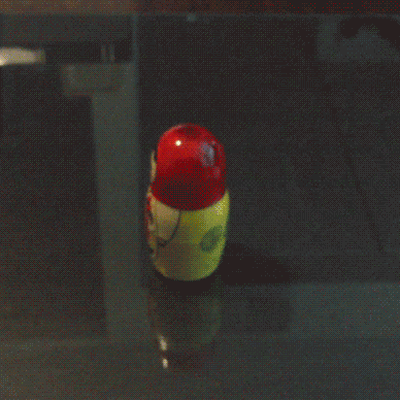Transducers
From Clojure to C++
1. What?
 "A transducer is a device that converts
one form of energy to another. Energy types include (but
are not limited to): electrical, mechanical,
electromagnetic (including light), chemical, acoustic,
and thermal energy. Usually a transducer converts a
signal in one form of energy to a signal in another[1]
(for example, a loudspeaker driver converts an electric
signal to sound), but any variable attenuation of energy
may serve as input; for example, the light reflecting
off the landscape, although it is not a signal, conveys
information that image sensors, one form of transducer,
can convert. A sensor is a transducer whose purpose is
to sense (i.e. detect) some characteristic of its
environs; it is used to detect a parameter in one form
and report it in another form of energy, often an
electrical signal. For example, a pressure sensor might
detect pressure (a mechanical form of energy) and
convert it to electrical signal for display at a remote
gauge. Transducers are widely used in measuring
instruments."
"A transducer is a device that converts
one form of energy to another. Energy types include (but
are not limited to): electrical, mechanical,
electromagnetic (including light), chemical, acoustic,
and thermal energy. Usually a transducer converts a
signal in one form of energy to a signal in another[1]
(for example, a loudspeaker driver converts an electric
signal to sound), but any variable attenuation of energy
may serve as input; for example, the light reflecting
off the landscape, although it is not a signal, conveys
information that image sensors, one form of transducer,
can convert. A sensor is a transducer whose purpose is
to sense (i.e. detect) some characteristic of its
environs; it is used to detect a parameter in one form
and report it in another form of energy, often an
electrical signal. For example, a pressure sensor might
detect pressure (a mechanical form of energy) and
convert it to electrical signal for display at a remote
gauge. Transducers are widely used in measuring
instruments."
Invented by Rich Hickey Introduced in Clojure 1.7
Research from Ableton on declarative
data models
A transducer is a transformation
over a sequential process
map([](int x) { return std::to_string(x); });
A transformation as a value
auto xf = map([](int x) { return std::to_string(x); });
A composable transformation
auto xf = comp(
filter([](int x) { return x > 0; }),
map([](int x) { return std::to_string(x); }));
$$comp(f, g) = f \circ g$$ $$(f \circ g)(x) = f(g(x))$$
A transformation independent of the source
auto xf = comp(
filter([](int x) { return x > 0; }),
map([](int x) { return std::to_string(x); }));
auto data = std::vector<int>{ ... };
auto xformed = sequence(xf, data);
std::copy(xformed.begin(), xformed.end(), ...)
run(comp(read<int>(std::cin),
xf,
write(std::cout)));
auto sig1 = boost::signal<void(int)>{};
auto sig2 = make_signal(xf, sig1);
sig2.connect([] (std::string s) { cout << s << endl; });
sig1(41); sig1(-10); sig1(10) // "41", "10", ...
Sequential processes are
not just ranges!
- An iterator
- GUI events
- CSP Channels
- A network socket



2. How?
"Extract the essence
of
map and filter"
template <typename In, typename Out, typename F>
Out transform(In first, In last, Out out, F fn) {
for (; first != last; ++first) {
*out++ = fn(*first);
}
return out;
}
template <typename In, typename Out, typename P>
Out filter(In first, In last, Out out, P pred) {
for (; first != last; ++first) {
if (pred(*first))
*out++ = *first;
}
return out;
}
template <typename In, typename S, typename Rf>
S accumulate(In first, In last, S acc, Rf step) {
for (; first != last; ++first) {
acc = step(acc, *first);
}
return acc;
}
auto output_rf = [] (auto out, auto input) {
*out++ = input;
return out;
};
template <typename In, typename Out, typename F>
Out transform(In first, In last, Out out, F fn) {
return accumulate(first, last, out, [&](auto state, auto input) {
return output_rf(state, fn(in));
});
}
template <typename In, typename Out, typename P>
Out filter(In first, In last, Out out, P pred) {
return accumulate(first, last, out, [&](auto state, auto input) {
return pred(input) ? output_rf(state, input) : state;
});
}
auto map = [] (auto fn) { return [=] (auto step) { return [=] (auto s, auto ...ins) { return step(s, fn(ins...)); }; }; };
auto filter = [] (auto pred) { return [=] (auto step) { return [=] (auto s, auto ...ins) { return pred(ins...) ? step(s, ins...) : s; }; }; };
// transform(first, last, fn) ==
accumulate(first, last, out,
map(fn)(output_rf));
// filter(first, last, pred) ==
accumulate(first, last, out,
filter(fn)(output_rf));
auto map = [] (auto fn) {
return [=] (auto step) {
return [=] (auto s, auto ...ins) {
return step(s, fn(ins...));
};
};
};
auto filter = [] (auto pred) {
return [=] (auto step) {
return [=] (auto s, auto ...ins) {
return pred(ins...)
? step(s, ins...)
: s;
};
};
};
Definitions
- Reducing function
- Transducer
- State
- Inputs
- Outputs
Mmmh, smells
like essence of map and filter!
The pipeline goes left to right
accumulate(first, last, out, comp(filter(pred), map(fn)) (output_rf))accumulate(first, last, out, filter(pred) (map(fn) (output_rf)))
Atria uses Clojure's nomenclature
- reduce(step, initial, ranges...)
- transduce(xform, step, initial, ranges...)
- into(col, xform, ranges...)
- into_vector(xform, ranges...)
- sequence(xform, ranges...)
3. Advanced stuff
1. Variadic transducers
Most transducers have arity 0...n
// 0 inputs, generator
sequence(map(&std::rand));
// 1 input
auto v1 = { 1, 2, 3, 4, 5 }
transduce(map([](int x){ return x * 2 }),
std::plus<>{},
0,
v1);
// n inputs, zipping...
auto v1 = { 1, 2, 3, 4, 5 }
auto v2 = { 3.3, 2.2, 1.1 }
into_vector(map(plus<>{}), v1, v2);
into_vector(identity, v1, v2);
// n outputs
sequence(comp(
map([] { return make_tuple(rand(), rand(), rand()); }),
unzip,
filter([] (int x, int y, int z) { return x<y && y<z; }),
interleave));
2. State
enumerate is a stateful transducer
sequence(enumerate);
// 0, 1, 2, 3, ...
sequence(enumerate, "abc");
// (0, 'a'), (1, 'b'), (2, 'c')
The Clojure way is to hide the state
in the reducing function
auto enumerate = [] (auto step) {
return [n = 0] (auto s, auto ins...) mutable {
return step(s, n++, ins...);
};
};
state goes here
auto enumerate = [] (auto step) {
return [n = 0] (auto s, auto ins...) mutable {
return step(s, n++, ins...);
};
};
not here!
state_wrapper<
Tag,
State,
Data
>

auto enumerate = [] (auto step) {
return [=] (auto s, auto ins...) {
auto n = state_data(s, [] { return 0; });
auto w = state_unwrap(s);
return state_wrap(step(w, n, ins...), n + 1);
};
};
3. Early termination
Take needs to terminate early
into_vector(comp(enumerate, take(4)))
// { 0, 1, 2, 3 }
into(string{}, comp(map(tolower), take(4)), "ABCDEG...")
// "abcd"
struct take_tag {}; auto take = [] (auto count) { return [] (auto step) { return [=] (auto s, auto ins...) { auto n = state_data(s, [] { return count; }); auto w = state_unwrap(s); return state_wrap<take_tag>( step(w, ins...), n - 1); }; }; };
Use tag to define reduced state
template <typename T>
bool state_wrapper_data_is_reduced(take_tag, T n) {
return n == 0;
}
state_is_reduced(state)
4. Batteries included
- reduce,
reduce_nested
- reductor
- transducer
reduce_nested
auto cat = [] (step) {
return [=] (auto s, auto... ins) {
return reduce_nested(
step, s, ins...);
}
};
- operator () (Ins...);
- operator bool ();
- current() -> StateT
- complete() -> State
transducer<int, pack<int, char> >
xform = comp(
map([](auto x) {
return to_string(x); }),
cat,
enumerate);
"std::function for transducers"

|
cat dedupe distinct drop drop_while filter interpose mapcat map map_indexed partition_by partition random_sample remove replace take take_nth take_while |

|
chain count cycle enumerate product range repeat |
Exclusive! |
each eager interleave iter readbuf read sink traced transducer unzip writebuf write zip |
5. Performance
The good
State and inputs
forward through the chain
Small functions, easy to inline
Benchmarks say that most transducers pipelines perform like hand-written code
Often faster than boost.range
The ugly
Type erasure is expensive
Adapting as iterator has overhead
4. Conclusion
transform
value
composable
independent
pure
fast
wip
std?
Thank
you
very
much
!
Juanpe Bolívar
github.com/arximboldi
https://sinusoid.al
@sinusoidalen
Extras
Tail recursive accumulate
template <typename InT, typename StateT, typename FnT>
StateT accumulate(InT first, InT last, StateT state, FnT fn)
{
return first == last
? state
: accumulate(next(first), last,
fn(state, *first),
fn);
}
C++11 transducer
struct map_rf_gen {
template <typename ReducingFnT,
typename MappingT>
struct apply {
ReducingFnT step;
MappingT mapping;
template <typename State, typename ...Inputs>
auto operator() (State&& s, Inputs&& ...is)
-> ABL_DECLTYPE_RETURN(
step(std::forward<State>(s),
estd::invoke(mapping, std::forward<Inputs>(is)...)))
};
};
template <typename MappingT>
auto map(MappingT&& mapping)
-> transducer_impl<detail::map_rf_gen, estd::decay_t<MappingT> > {
return { std::forward<MappingT>(mapping) };
}
template<typename ReducingFnGenT,
typename ...ParamTs>
struct transducer_impl : std::tuple<ParamTs...>
{
using base_t = std::tuple<ParamTs...>;
template <typename ...Ts>
transducer_impl(Ts ...ts)
: base_t(std::move(ts)...) {}
template<typename ReducingFnT>
constexpr auto operator() (ReducingFnT&& step) const
-> typename ReducingFnGenT::template apply<
estd::decay_t<ReducingFnT>,
estd::decay_t<ParamTs>...
>
{
using indexes_t = estd::make_index_sequence<sizeof...(ParamTs)>;
return this->make(std::forward<ReducingFnT>(step), indexes_t());
}
template<typename ReducingFnT, std::size_t...indexes_t>
constexpr auto make(ReducingFnT&& step, estd::index_sequence<indexes_t...>) const
-> typename ReducingFnGenT::template apply<
estd::decay_t<ReducingFnT>,
estd::decay_t<ParamTs>...
>
{
return { std::forward<ReducingFnT>(step),
std::get<indexes_t>(*this)... };
}
};
Completion
into_vector(partiton(3), "abcdef")
// {'a', 'b', 'c'}, {'d', 'e', 'f'}
into_vector(partiton(3), "abcd")
// {'a', 'b', 'c'}, {'d'}
struct partition_tag {};
auto partition = [] (auto count) {
return [] (auto step) {
return [] (auto s, auto... ins) {
using elem_t = decltype(tuplify(ins...));
auto data = state_data(s, [] {
return make_tuple(std::vector<elem_t>{}, step);
});
auto& group = get<0>(data);
auto& step_ = get<1>(data);
group.push_back(tuplify(ins...));
auto w = group == count
? call(step_, state_unwrap(s), group)
: skip(step_, state_unwrap(s), group);
return wrap_state(w, data);
}
};
}
template <typename T>
auto state_wrapper_complete(partition_tag, T s) {
auto data = state_wrapper_data(s);
return state_complete(std::get<1>(data) (
state_unwrap(s),
std::get<0>(data)));
}
Jokes
